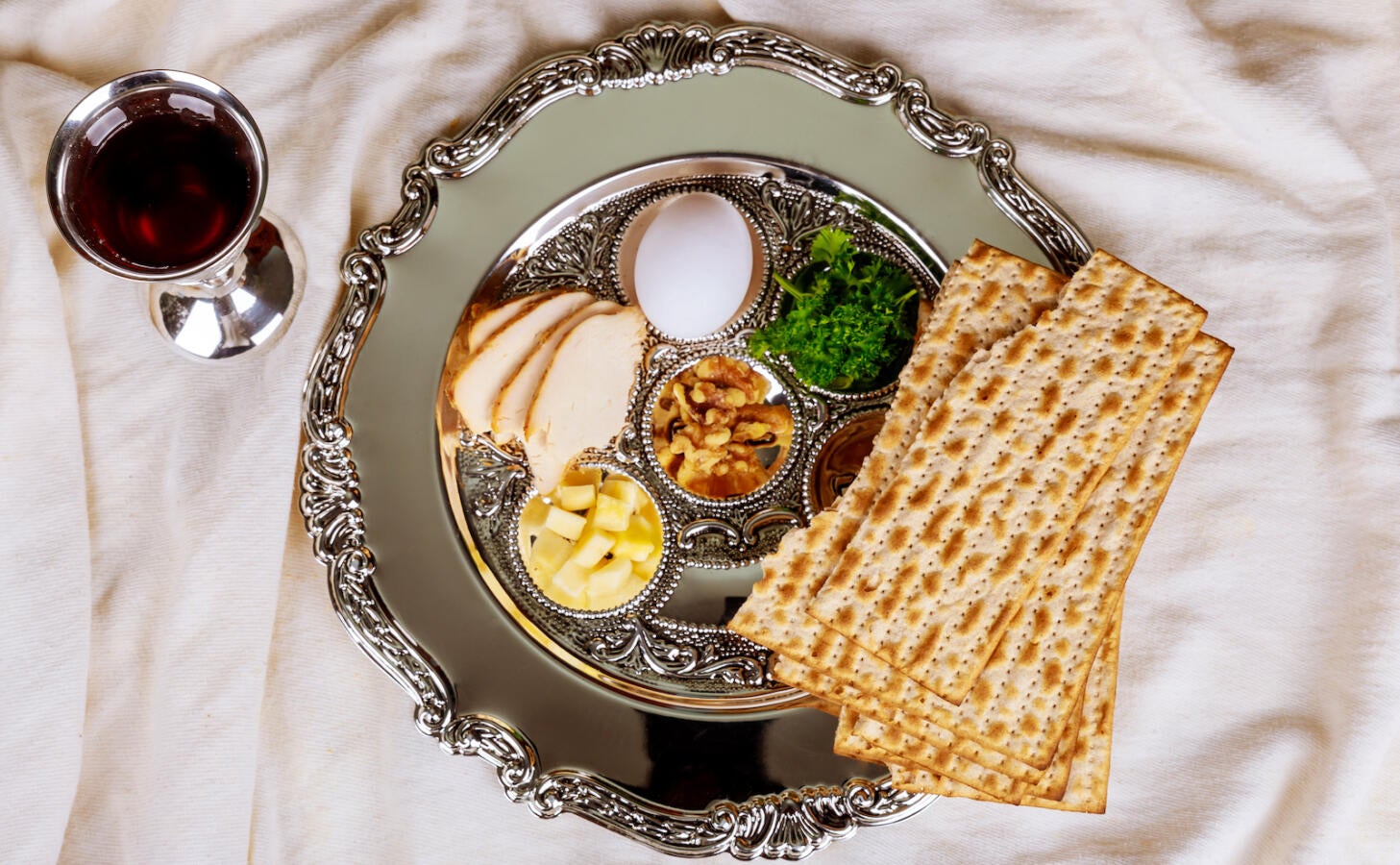Passover commemorates the Exodus of the Israelites from slavery in Egypt. Its name comes from the miracle that the Angel of Death “passed over” the houses of the Israelites, sparing them from death, during the tenth plague on Egypt. The Hebrew word pesach literally means “passed over.”
In Jewish sources, Passover is also known by four alternate names, each highlighting a different aspect of the holiday.
Chag HaMatzot (חַג הַמַּצּוֹת) – Feast of Unleavened Bread: This a common name for Passover in the Hebrew Bible (Exodus 23:15, Leviticus 23:6, Deuteronomy 16:16, etc.). This refers to the weeklong festival during which leaven is not consumed. During this week, the five primary grains — wheat, barley, oats, spelt and rye — are eaten only if they are made into matzah, unleavened bread.
Learn to make your own matzah.
With your help, My Jewish Learning can provide endless opportunities for learning, connection and discovery.
Chag HaPesach (חַג הַפֶּסַח) – Festival of the Paschal Sacrifice: The special sacrifice that was historically made on eve of Passover was called the korban pesach, or paschal sacrifice. It commemorates the tenth plague on Egypt, when God sent the Angel of Death to kill the firstborns in every Egyptian household. Ahead of that plague, Moses instructed the Israelites to sacrifice a lamb or goat and mark the doorposts of their homes with blood, which would signal the Angel of Death to pass over that household. This sacrifice, and the ones that were made in commemoration of it in ensuing years, was called the pesach. Jews stopped offering the paschal sacrifices after the destruction of the Temple in 70 CE.
Learn more about the paschal sacrifice.
Chag HaAviv (חַג הָאָבִיב) – Festival of Spring: Passover takes place in the Hebrew month of Nisan, which is the first month of spring. An older biblical name for this month is Aviv, a word which refers to newly formed ears of barley. In modern Hebrew, the word aviv means spring. Chag HaAviv is a biblical name for Passover (Exodus 23:15).
Z’man Cheiruteinu (זְמַן חֵרוּתֵנוּ) – The Season of Our Freedom: This phrase is not found in the Hebrew Bible, but it is part of the prayer liturgy. It highlights the theme of redemption that is central to the holiday.



